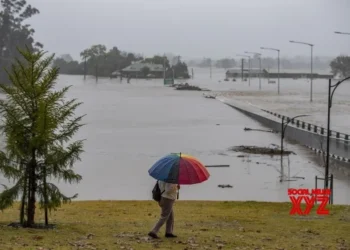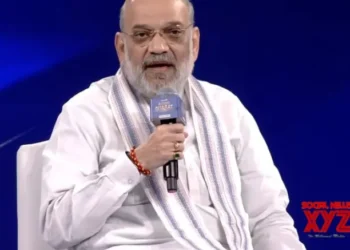UN Secretary-General Antonio Guterres has welcomed reports that Haitian stakeholders have nominated representatives to the Transitional Presidential Council, a UN spokesman said.
“He calls for all efforts to maintain the momentum and cohesively work toward the implementation of the transitional governance arrangements agreed upon last week,” said Farhan Haq, the Deputy Spokesman for Guterres, on Thursday.
Implementing the Caribbean Community’s suggestion for the Transitional Presidential Council is seen as paving the way for the deployment of the Kenyan-led Multinational Security Support mission, which is to be composed of police units from several nations to support Haiti’s police force. While authorised by the UN Security Council, it is not a UN mission.
“The swift deployment of the multinational force remains critical to ensure that the political and security tracks can advance in parallel, as only complementary efforts can be successful,” Haq added as quoted by Xinhua news agency report.
“The UN, through BINUH (the UN Office in Haiti), will continue to support Haiti on its path toward the restoration of democratic institutions.”
The Spokesman said BINUH calls for the protection of human rights defenders, journalists, and other members of civil society.
Ulrika Richardson, the UN resident and humanitarian coordinator for Haiti, praised the efforts of the local police in battling gang attacks and humanitarian workers for their efforts during a briefing to reporters via a video link from Haiti.
“The local police have been extremely heroic and really been able to put up quite some resistance. But of course they struggled to be present everywhere,” she said.
The UN Office for the Coordination of Humanitarian Affairs (OCHA) said UN humanitarians and partners continue to provide aid in Haiti.
The World Food Programme continues to distribute hot meals in Port-au-Prince, the capital city.
But on Wednesday, it could only reach 10 of the 14 displaced sites intended due to roadblocks. Only 11,500 hot meals were delivered instead of the planned 14,000, said OCHA.
The International Organisation for Migration (IOM) and its local partners have delivered blankets, solar lamps and kitchen kits to 3,800 displaced people. Meanwhile, between Saturday and Wednesday, the UN Children’s Fund, the IOM and their national partners delivered more than 36,000 gallons of water to displaced sites, reaching over 15,000 uprooted people, OCHA added.
The Pan American Health Organisation and the World Health Organisation supported the national health department by distributing water purification tablets, chlorine, gloves, boots, buckets and other items at sites for displaced people. They are also supporting the few operating health facilities by providing medicine and supplies, said the office.
For their part, the UN Population Fund and its partners on Wednesday deployed a mobile clinic in a site for displaced people to address sexual and reproductive health, as well as sexual and gender-based violence. More than 200 people received assistance. They also distributed hundreds of dignity kits to women and girls. Psychosocial support remains a critical service for thousands of traumatised people, it said.
Despite the operations, humanitarians are only able to do a portion of what is needed, said OCHA.
“We have supplies in the country at the port in the capital. But they are at risk of being looted. We also need air transportation and our maritime services to urgently scale up our operations. We are calling on all parties to ensure safe, unhindered access to reach people in need.”
Nearly half of the country’s population — 5.5 million people — need humanitarian aid, OCHA added.





















